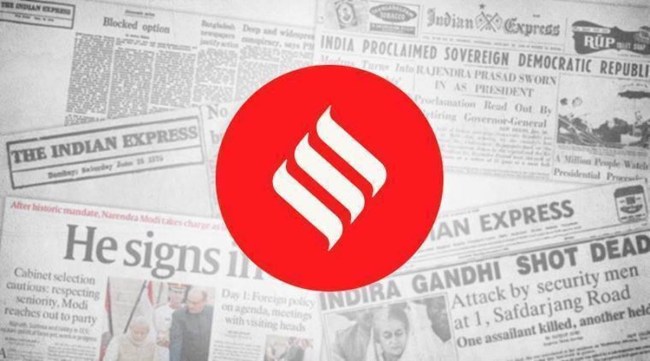Opinion Roll it back
The directive in the capital against meat during Navratri is retrograde and unacceptable
 The mayor's directive must be snubbed by the BJP which rules Delhi's three civic bodies. If the BJP fails to do the right thing, however, the court must step in.
The mayor's directive must be snubbed by the BJP which rules Delhi's three civic bodies. If the BJP fails to do the right thing, however, the court must step in.
The directive by the mayor of the BJP-ruled South Delhi Municipal Corporation on shutting down meat shops during the nine-day festival of Navratri is retrograde, the controversy it has kicked up is dispiriting. In a country of many religions and festivals, the mayor’s directive seeks to cramp fundamental rights and freedoms – the individual’s right to choose what she eats and when, and also, importantly, her right to livelihood. The row can be seen as the latest part of a dismal and spreading pattern of majoritarian excess, and the targeting of the minority community – a line runs through
 In a series of rulings, courts have held that the right to choose one’s food is an intrinsic part of the right to privacy and personal liberty. In the landmark Puttaswamy ruling in 2017, upholding the right to privacy as a fundamental right, the Supreme Court held that “the choice of food habits” is an aspect of privacy that must be protected. Earlier, even when it upheld temporary restrictions on the sale of meat in Ahmedabad in another judgement in 2008, the SC recognised that “what one eats is one’s personal affair and it is a part of his right to privacy which is included in Article 21 of our Constitution.” It also spoke against infringement of the individual’s right to livelihood: “After all, butchers are practising a trade and it is their fundamental right under Article 19(1)(g) of the Constitution which is guaranteed to all citizens of India. Moreover, it is not a matter of the proprietor of the butchery shop alone. There may be also several workmen therein who may become unemployed if the slaughterhouses are closed for a considerable period of time… ”. More recently, in Shaikh Zahid Mukthar v State of Maharashtra (2017), the Bombay High Court struck down Section 5D of the Maharashtra Animal Preservation Act, 1976 which put a virtual ban on the possession and consumption of beef in the state. “A citizen has a right to lead a meaningful life within the four corners of his house as well as outside his house. This intrusion on the personal life of an individual is prohibited by the right to privacy which is part of personal liberty guaranteed by Article 21. The State cannot prevent a citizen from possessing and consuming a particular type of food which is not injurious to health (or obnoxious) … if the State tells the citizens not to eat a particular type of food or prevents the citizens from possessing and consuming a particular type of food, it will certainly be an infringement of a right to privacy…,” wrote Justice AS Oka, now a judge of the Supreme Court.
In a series of rulings, courts have held that the right to choose one’s food is an intrinsic part of the right to privacy and personal liberty. In the landmark Puttaswamy ruling in 2017, upholding the right to privacy as a fundamental right, the Supreme Court held that “the choice of food habits” is an aspect of privacy that must be protected. Earlier, even when it upheld temporary restrictions on the sale of meat in Ahmedabad in another judgement in 2008, the SC recognised that “what one eats is one’s personal affair and it is a part of his right to privacy which is included in Article 21 of our Constitution.” It also spoke against infringement of the individual’s right to livelihood: “After all, butchers are practising a trade and it is their fundamental right under Article 19(1)(g) of the Constitution which is guaranteed to all citizens of India. Moreover, it is not a matter of the proprietor of the butchery shop alone. There may be also several workmen therein who may become unemployed if the slaughterhouses are closed for a considerable period of time… ”. More recently, in Shaikh Zahid Mukthar v State of Maharashtra (2017), the Bombay High Court struck down Section 5D of the Maharashtra Animal Preservation Act, 1976 which put a virtual ban on the possession and consumption of beef in the state. “A citizen has a right to lead a meaningful life within the four corners of his house as well as outside his house. This intrusion on the personal life of an individual is prohibited by the right to privacy which is part of personal liberty guaranteed by Article 21. The State cannot prevent a citizen from possessing and consuming a particular type of food which is not injurious to health (or obnoxious) … if the State tells the citizens not to eat a particular type of food or prevents the citizens from possessing and consuming a particular type of food, it will certainly be an infringement of a right to privacy…,” wrote Justice AS Oka, now a judge of the Supreme Court.
The mayor’s directive does not just affect the shops and citizens of South Delhi. Its deleterious effect runs wider and deeper. As the custodian of citizens’ rights and liberties in a diverse democracy, the court has played a seminal role in expanding the space for freedoms. It must now step in, draw the constitutional red line in Delhi.






